Site will be
unavailable for maintenance from June. 4, 11:30 p.m., to June 5, 12:30 a.m. ET. Thank you for your
patience!
Mithusa's miracle: A story in photos
By Jake Lyell, photographer and storyteller for ChildFund Posted on 07/10/2023
“I started really worrying at six months,” says Uthakumari, a mother in rural Mullaitivu District, Sri Lanka. “She showed no emotion. She wouldn’t smile. She wouldn’t even turn over.”
By her first birthday, Uthakumari’s daughter Mithusa, who was born in 2009, was diagnosed with cerebral palsy.
“People advised me to abandon her,” Uthakumari remembers. “At 18 months, one doctor told me, ‘Don’t bring her back here again. She’s a lost cause.’”
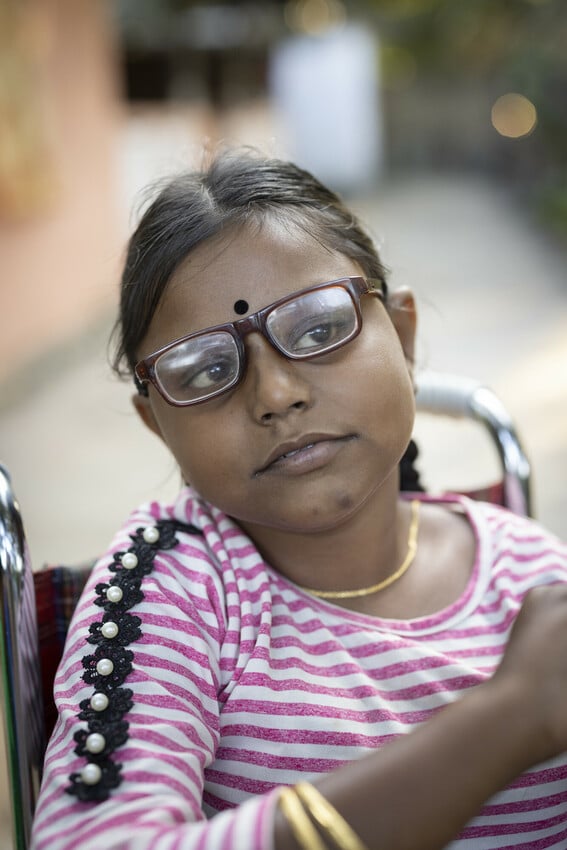 For the first seven years of her life, Mithusa only ever left home to attend health care visits. She was isolated in bed, without the ability to sit up. She drooled constantly, suffered epileptic seizures, hit those around her, wouldn’t talk and communicated very little otherwise with her family. Uthakumari refused to give up on her daughter, however. One day a volunteer knocked on the door and invited Mithusa and her mother to attend a medical camp supported by ChildFund. This would be the beginning of a long journey out of isolation for Mithusa.
For the first seven years of her life, Mithusa only ever left home to attend health care visits. She was isolated in bed, without the ability to sit up. She drooled constantly, suffered epileptic seizures, hit those around her, wouldn’t talk and communicated very little otherwise with her family. Uthakumari refused to give up on her daughter, however. One day a volunteer knocked on the door and invited Mithusa and her mother to attend a medical camp supported by ChildFund. This would be the beginning of a long journey out of isolation for Mithusa.
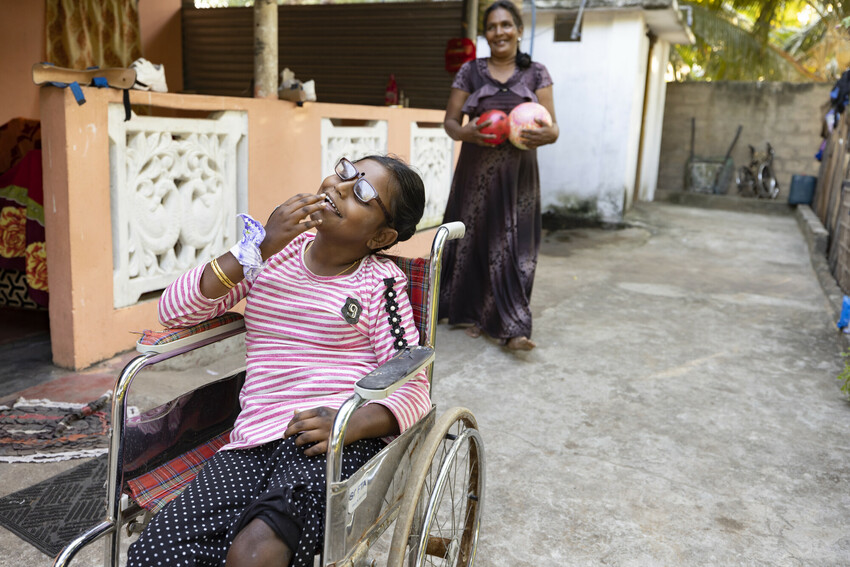
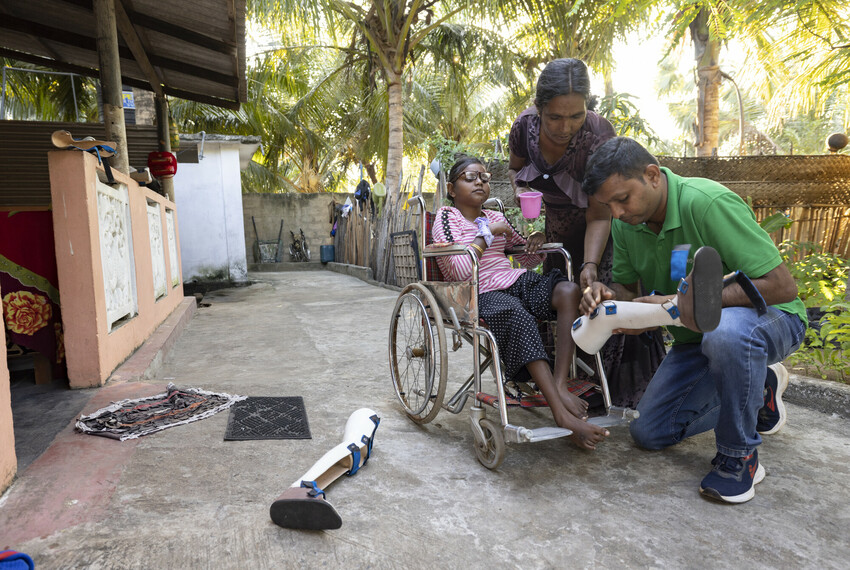
How we help children with disabilities
At the medical camp, Mithusa was evaluated and afterwards enrolled in ChildFund’s Community-based Inclusive Development project (CBID). At just 7 years old, health care workers were hopeful that Mithusa would, at minimum, be successful in keeping her cerebral palsy from progressing and further reducing Mithusa’s mobility. A care plan was established with physical therapists, and Uthakumari was trained on how to perform daily physical therapy at home with her daughter. Mithusa would also begin to attend speech therapy classes.
The first milestone was reached the very first year Mithusa began participating in the program. “I began stimulating her cheek muscles, and this stopped her from constantly salivating,” says Mom. “This gave me hope that other issues could be improved, too.” With daily physical therapy, Mithusa began to sit up in a chair. She gradually began to communicate more and more non-verbally until she eventually began to mouth words.
“I always saw improvements with every bit of effort I put in,” says Mom, beaming with pride. “Now I’d say she’s improved about 90 percent.” Today, Mithusa recognizes and interacts with the people around her. She’s talkative and bubbly and is beginning to maneuver her own wheelchair, which was provided to her by ChildFund. “She’s constantly smiling and has joy inside her. All of this was not there before, but I knew it would happen.”
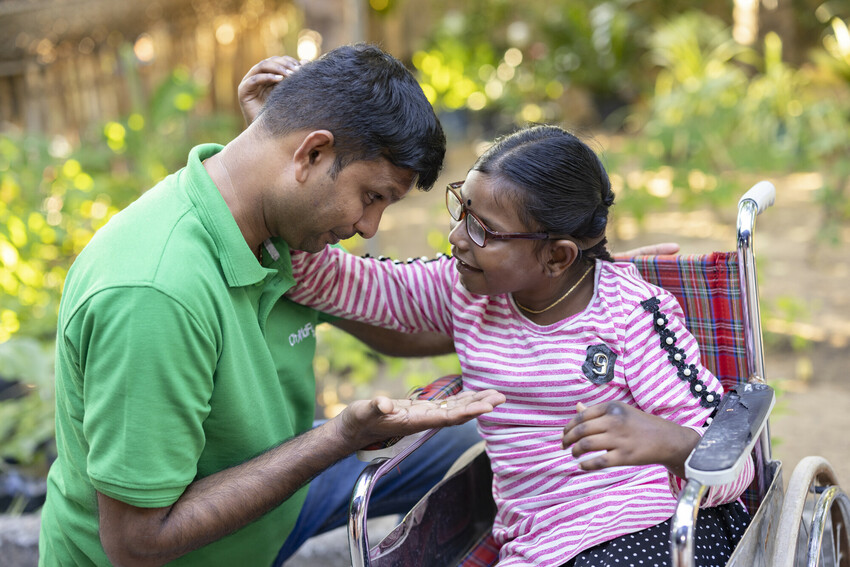
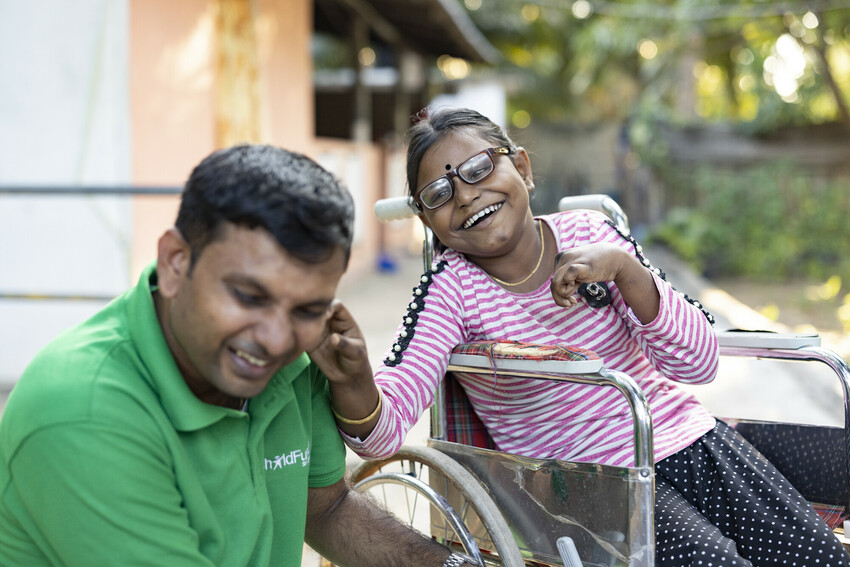
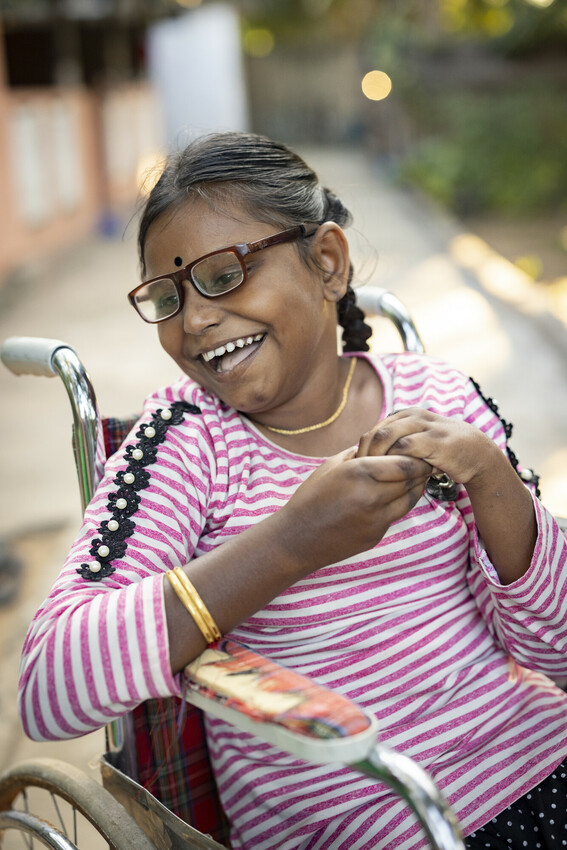 As part of the holistic CBID program, ChildFund works with schools in Mullaitivu District to be more inclusive of children with disabilities. Advocacy efforts by ChildFund resulted in Mithusa’s local school hiring a special education teacher for her and other children with disabilities in the area, while ChildFund provided teacher training, resources and equipment to the school. Mithusa started attending school two years ago and now attends five days a week. She’s continuing to improve in her speech. She is drawing and recognizing letters. Her behavior has also improved. “She’s broken at least 20 pairs of glasses before, but this pair she’s had for over six months,” says Mom, adding that Mithusa now recognizes the need and value of her glasses and wants to protect them.
As part of the holistic CBID program, ChildFund works with schools in Mullaitivu District to be more inclusive of children with disabilities. Advocacy efforts by ChildFund resulted in Mithusa’s local school hiring a special education teacher for her and other children with disabilities in the area, while ChildFund provided teacher training, resources and equipment to the school. Mithusa started attending school two years ago and now attends five days a week. She’s continuing to improve in her speech. She is drawing and recognizing letters. Her behavior has also improved. “She’s broken at least 20 pairs of glasses before, but this pair she’s had for over six months,” says Mom, adding that Mithusa now recognizes the need and value of her glasses and wants to protect them.
Children with disabilities, not inabilities
Recently, Mithusa and her mother were waiting by the roadside for a public bus to transport them to the physical therapy clinic. As often happens, the approaching driver and conductor realized that allowing Mithusa and her wheelchair to board would take too much time. They sped off without them to find customers who could board more quickly. Though this happens frequently, one thing had changed. This time, Mithusa questioned her reality. “Why won’t they let me ride the bus?” she asked her mom.
Today, Mithusa is working on her next milestone. She’s beginning to stand, albeit with the help of leg braces. “She will definitely walk,” says Mom with certainty. “I know, one day, she will get up out of that chair and walk.”
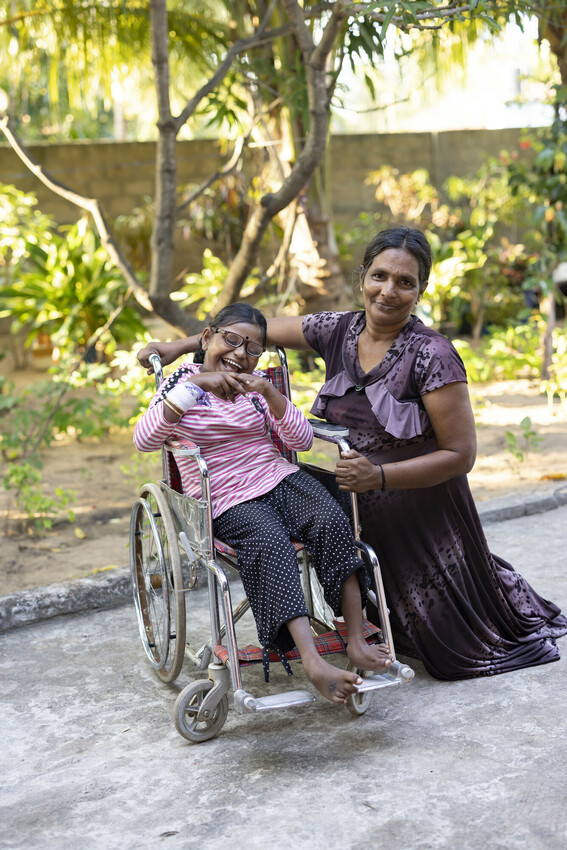
Loading...

